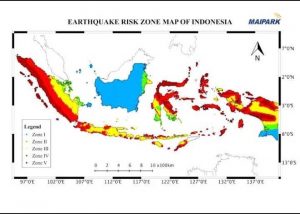Indonesians react to the tsunami relief efforts
by Selsabil Beloued, reporter
The Indonesian government has come under fire for their inadequate relief efforts. Following news coverage of the tsunami, the government’s aid was described as ‘slow’ as communities remain cut off.
The government’s response to the tsunami that killed over 1,571 people in Sulawesi island was heavily scrutinised by the media.
On the other hand, local Indonesians have spoken in high praise on the help of officials.
Bayu Nugroho, from the neighbouring island of Java, lives far enough from the centre of events to not be affected but close enough to see that his government was not actually up to the task.
͞”The whole city was destroyed, even the streets were destroyed like in the 2012 movie. The government did not give food in Palu, because there was no access to the city.”
Bayu says that he is happy with his country’s government and NGOs who͛ve been doing an outstanding job.
Palu, a city in Sulawesi, was the first to be hit by the devastating wave of the tsunami. A week later, rescue teams are still trying to find survivors among the ruins of over 70,000 houses.

The British public have raised £2 million to the Indonesia Tsunami Appeal led by the Disasters Emergency Committee.
Yesterday, the UK government pledged to match pound-for-pound that donation and has sent thousands of shelter kits, solar lanterns and water purifiers on flight to the disaster zone.
Bayu stressed that the most urgent aid survivors need is food such as noodles and rice. “I hope foreign aid includes food”, he said. “From the testimony of my neighbour who returned from there, he did not eat for 3 days, because there was no food or drink there.”
Charities typically provide the homeless in Indonesia with shelter, sanitation and water while others, like the World Food Programme, will prioritise food delivery.
Bayu’s neighbour is a man in his thirties who went to Palu to complete a job training but had to flee back to Java two days ago. He was visibly traumatised when he visited his friend Bayu.
Indonesia’s double disaster has left people grieving, homeless, and scarred for life.
Yanuer Montio, 24, from Surabaya says people will first rebuild the city of Palu.
“I think the issue is how to minimise the victims in every disaster to come but we͛re not serious enough to solve this problem. He said that in the past the world had donated relief tools like tsunami alarms but sadly people stole the tools for money.”
Yanuer wishes locals would learn from the risk zone map of Indonesia.
“You know, the circle of volcanoes and earthquake is around Indonesia, so we are always facing disasters like that.”
Yanuer͛s main concern is information. People living in the areas most likely to be affected need to learn how to build resistant housing.
He’d be happy to see the authorities assigning a team that works closely with natural disaster forecasters to alert people ahead of the tsunami.
For the time being, Indonesia’s first priority is to make sure to rescue final survivors and find the missing persons in the ruins.

